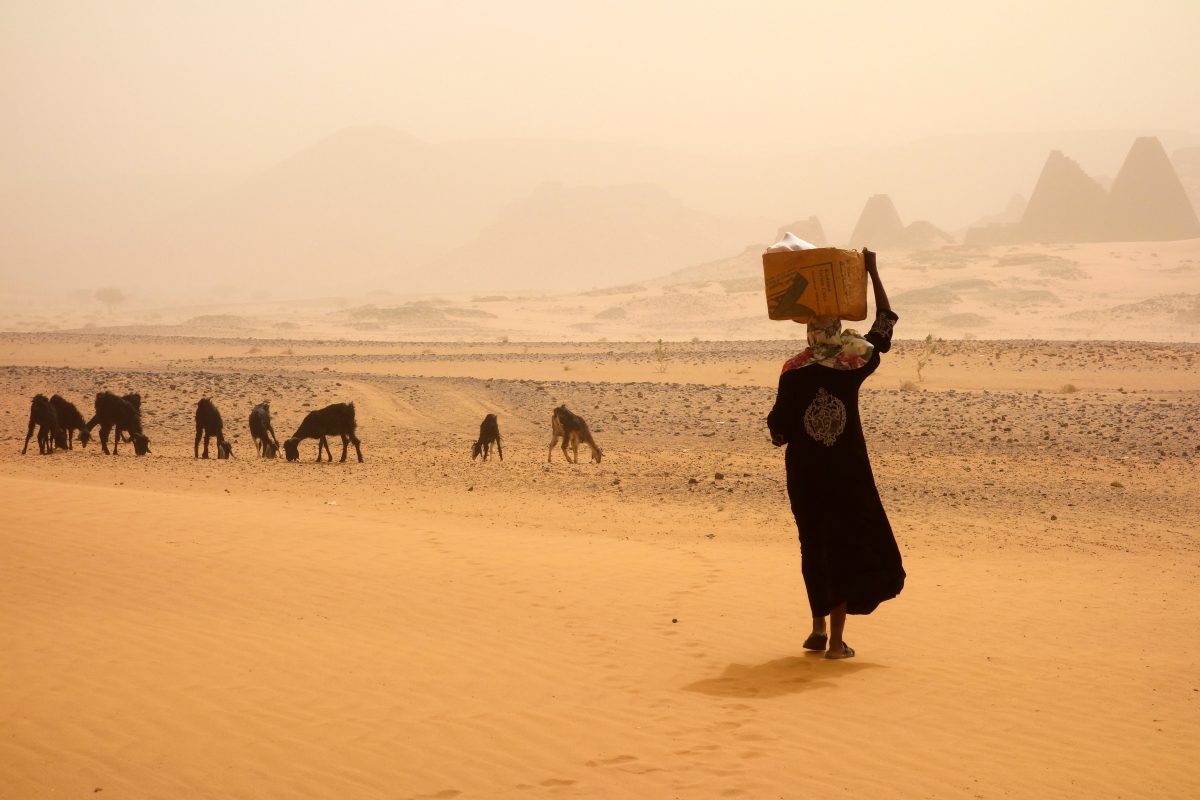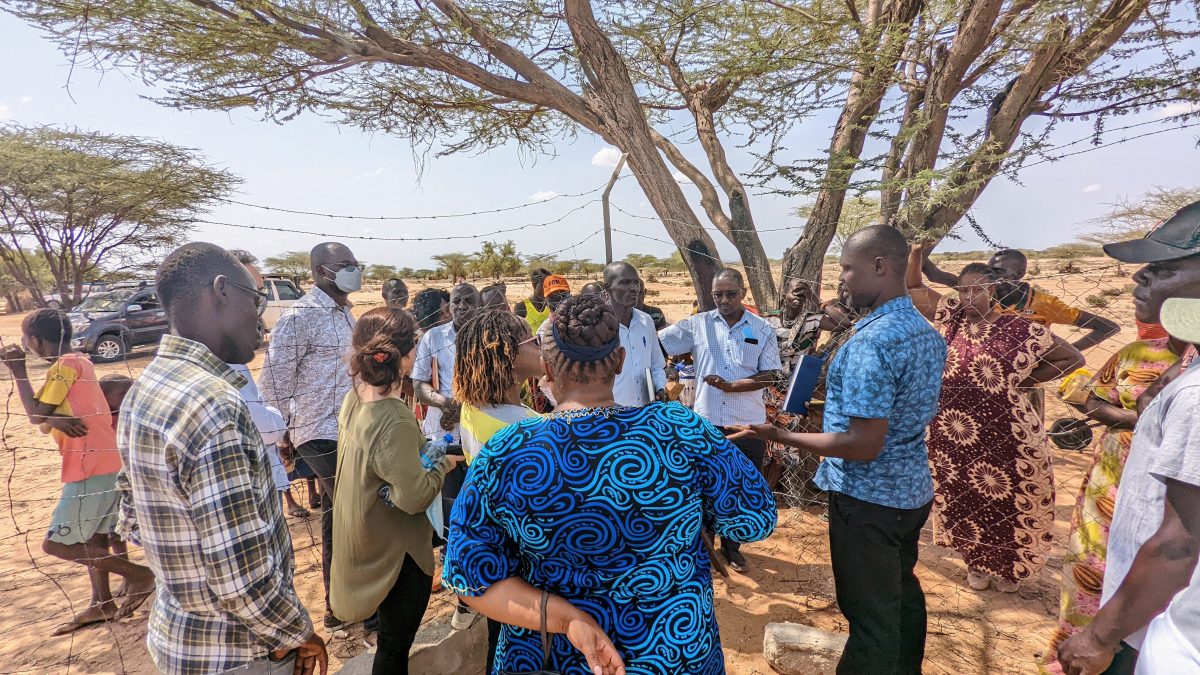The Cooperation in International Waters in Africa releases its 2022 Annual Report
Posted in : Blog on 1 December 2022
Sub-Saharan Africa has faced a series of shocks in the last year. Increasing conflict and fragility, the deceleration of economic growth resulting from the war in Ukraine, and rising energy prices occurred against a backdrop of the continuing COVID-19 pandemic and worsening climate change. These factors are pushing more people into extreme poverty and exacerbating food and water insecurity across the continent, making the work of the Cooperation in International Waters in Africa (CIWA) more important than ever.
CIWA works with the government of riparian countries to shore-up their capacities to co-operatively manage water resources and prepare for, adapt to, and recover from shocks. Share on X Its projects are at the forefront of local, national, and regional efforts to fuel sustainable, inclusive, climate-resilient growth. The just-released Annual Report 2022 chronicles CIWA’s efforts to strengthen resilience, water security, and economic development in the 2022 fiscal year, which ended June 30, 2022.

Tackling transboundary water challenges
Strengthening water resources management is key to ensuring water and food security, spurring economic growth, and improving livelihoods for the continent’s 1.3 billion inhabitants. With 90 percent of the water in Africa falling within 63 river basin catchments crossed by multiple borders, cooperation in water resources management and development is crucial.Over the last year CIWA has continued to work with partner governments to strengthen information, institutions, and infrastructure systems to help countries prepare for, and mitigate, the worst impacts of climate change and reduce climate vulnerability.
In East Africa, CIWA worked to enhance the region’s resilience to climate change and water insecurity, elevate the voices of civil society in decisions about water resources, and provide opportunities for riparian dialogue and hydro-diplomacy.
In the Horn of Africa, which is facing cascading impacts from the worst drought in four decades, CIWA programs focused on improving access to groundwater as the region’s cornerstone for water security. Initiatives helped expand the knowledge base on groundwater, strengthen the capacity of partners to manage and develop groundwater, and improve regional platforms focused on building resilience.
Increased climate impacts were also strongly felt in West and Central Africa, a region beset by violence, weak institutions, and political instability and which faced prolonged drought and unpredictable rainy seasons causing flooding in the Sahel. CIWA worked to improve water resources management by identifying strategic investments and key policy actions while addressing knowledge and capacity gaps. It also conducted a Water Security Assessment in Lake Chad as the first step toward developing a transformative water security framework to address regional water challenges.
In Southern Africa, where prolonged drought conditions fueled food, and water insecurity, poverty, and economic fragility, CIWA focused on strengthening management of groundwater resources to help mitigate drought impacts and secure water supply during emergencies. It also worked to build resilience by addressing cross-border drought risks, promoting cooperative management of shared waters, and facilitating cooperation efforts around sustainable management of transboundary aquifers.
Enhancing resilience to climate shocks and fragility, conflict, and violence
Countries in Africa have contributed little to rising greenhouse gas emissions yet are suffering disproportionately from their damaging effects. Africa is warming at a faster rate than the global average and can expect more intense, variable, and frequent heat waves, droughts, floods, and cyclones, which are fueling fragility, food and water insecurity, loss of income, inequality, conflict, and displacement.
In the context of rising temperatures, drought, and decreased surface water, groundwater is growing in importance and CIWA has continued enhancing systematic and sustainable groundwater use to protect water access. Last year, it deepened its support to countries affected by fragility, conflict, and violence (FCV), increasing its footprint from 11 countries in FY21 to 17 in FY22—nearly all the 20 African countries classified as FCV. CIWA remains deeply engaged in three priority FCV-affected regions—the Horn of Africa, the Sahel, and the Great Lakes.

Supporting biodiversity, use of data, and gender and social inclusion
Biodiversity is critical to the maintenance of both the quality and quantity of water supplies and underpins the livelihoods of millions, whether through agriculture, fishing, or tourism. Reliable data on the quality and quantity of water is vital to ensuring not just its protection, but the equitable and efficient management, distribution and usage of transboundary water. This past year, CIWA has enhanced both its biodiversity-related activities Share on X while also scaling-up its information-related support across the region, including a program to improve the capacity to collect, store, and use satellite-based (remotely sensed) data for evidence-based decision-making.
CIWA also ramped up its work on gender equality and social inclusion. It is implementing a new approach throughout its programs that recognizes that countering deep-seated patriarchal norms that exclude women Share on X requires a shift from one-off, short-term interventions toward a harmonized and integrated approach that is sustained throughout the life of the project and beyond.
To learn more about CIWA’s work, download the 2022 Annual Report, tune in to the newly-launched podcast series to hear straight from our experts in the field, check out the blogs, or sign-up to the CIWA bulletin.


